菲醌 ,Phenanthrenequinone ,95%
产品编号:SIGMA-275034| CAS NO:84-11-7| 分子式:C14H8O2| 分子量:208.2121
本网站销售的所有产品仅用于工业应用或者科学研究等非医疗目的,不可用于人类或动物的临床诊断或者治疗,非药用,非食用,
| 产品名称 | 菲醌 |
|---|---|
| 英文名称 | Phenanthrenequinone |
| CAS编号 | 84-11-7 |
| 产品熔点 | 209-212 °C(lit.) |
| 产品沸点 | 360.0±0.0 °C at 760 mmHg |
| 产品密度 | 1.3±0.1 g/cm3 |
| 产品闪点 | 163.1±4.4 °C |
| 精确质量 | 208.052429 |
| PSA | 34.14000 |
| LogP | 3.13 |
| 外观性状 | 黄色晶体粉末 |
| 蒸气压 | 0.0±0.8 mmHg at 25°C |
| 折射率 | 1.659 |
| 稳定性 | 本品可通过皮肤吸收中毒。动物试验结果,小鼠经口最低中毒量20mg/kg(连续一日)。操作人员应穿戴防护用具。 |
| 储存条件 | 本品应密封于阴凉干燥处保存。 采用内衬塑料袋,外套编织袋包装,贮存于阴凉、干燥、通风处,防晒、防潮,远离火种、热源。按一般化学品规定贮运。 |
相关文档
化学品安全说明书(MSDS)
下载MSDS质检证书(COA)
相关产品
| 符号 |
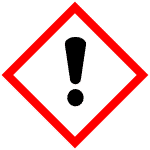
GHS07 |
|---|---|
| 信号词 | Warning |
| 危害声明 | H315-H319-H335 |
| 警示性声明 | P261-P305 + P351 + P338 |
| 个人防护装备 | dust mask type N95 (US);Eyeshields;Gloves |
| 危害码 (欧洲) | Xi:Irritant |
| 风险声明 (欧洲) | R36/37/38 |
| 安全声明 (欧洲) | S26-S36-S24/25-S22 |
| 危险品运输编码 | UN3077 |
| WGK德国 | 3 |
| RTECS号 | SF7875000 |
| 包装等级 | III |
| 危险类别 | 9 |
| 海关编码 | 29146990 |
Synonym: Section 2 - COMPOSITION, INFORMATION ON INGREDIENTS
Risk Phrases: 36/37/38 Section 3 - HAZARDS IDENTIFICATION EMERGENCY OVERVIEW
Irritating to eyes, respiratory system and skin.The toxicological properties of this material have not been fully investigated. Potential Health Effects Eye: May cause eye irritation. The toxicological properties of this material have not been fully investigated. Skin: May cause skin irritation. The toxicological properties of this material have not been fully investigated. Ingestion: May cause gastrointestinal irritation with nausea, vomiting and diarrhea. The toxicological properties of this substance have not been fully investigated. Inhalation: May cause respiratory tract irritation. The toxicological properties of this substance have not been fully investigated. Chronic: No information found. Section 4 - FIRST AID MEASURES Eyes: Flush eyes with plenty of water for at least 15 minutes, occasionally lifting the upper and lower eyelids. Get medical aid immediately. Skin: Get medical aid. Flush skin with plenty of water for at least 15 minutes while removing contaminated clothing and shoes. Wash clothing before reuse. Ingestion: If victim is conscious and alert, give 2-4 cupfuls of milk or water. Never give anything by mouth to an unconscious person. Get medical aid immediately. Inhalation: Remove from exposure and move to fresh air immediately. If not breathing, give artificial respiration. If breathing is difficult, give oxygen. Get medical aid. Notes to Physician: Section 5 - FIRE FIGHTING MEASURES General Information: As in any fire, wear a self-contained breathing apparatus in pressure-demand, MSHA/NIOSH (approved or equivalent), and full protective gear. During a fire, irritating and highly toxic gases may be generated by thermal decomposition or combustion. Extinguishing Media: Use water spray, dry chemical, carbon dioxide, or appropriate foam. Section 6 - ACCIDENTAL RELEASE MEASURES General Information: Use proper personal protective equipment as indicated in Section 8. Spills/Leaks: Clean up spills immediately, observing precautions in the Protective Equipment section. Sweep up, then place into a suitable container for disposal. Avoid generating dusty conditions. Provide ventilation. Section 7 - HANDLING and STORAGE Handling: Wash thoroughly after handling. Remove contaminated clothing and wash before reuse. Use with adequate ventilation. Minimize dust generation and accumulation. Avoid contact with eyes, skin, and clothing. Keep container tightly closed. Avoid ingestion and inhalation. Storage: Store in a tightly closed container. Store in a cool, dry, well-ventilated area away from incompatible substances. Section 8 - EXPOSURE CONTROLS, PERSONAL PROTECTION Engineering Controls: Use adequate ventilation to keep airborne concentrations low. Exposure Limits CAS# 84-11-7: Personal Protective Equipment Eyes: Wear appropriate protective eyeglasses or chemical safety goggles as described by OSHA's eye and face protection regulations in 29 CFR 1910.133 or European Standard EN166. Skin: Wear appropriate protective gloves to prevent skin exposure. Clothing: Wear appropriate protective clothing to prevent skin exposure. Respirators: Follow the OSHA respirator regulations found in 29 CFR 1910.134 or European Standard EN 149. Use a NIOSH/MSHA or European Standard EN 149 approved respirator if exposure limits are exceeded or if irritation or other symptoms are experienced. Section 9 - PHYSICAL AND CHEMICAL PROPERTIES Physical State: Granules Color: orange-red Odor: None reported. pH: Not available. Vapor Pressure: Not available. Viscosity: Not available. Boiling Point: 360 deg C Freezing/Melting Point: 209.00 - 211.00 C Autoignition Temperature: 630 deg C ( 1,166.00 deg F) Flash Point: Not available. Explosion Limits, lower: Not available. Explosion Limits, upper: Not available. Decomposition Temperature: Solubility in water: Slightly soluble. Specific Gravity/Density: Molecular Formula: C14H8O2 Molecular Weight: 208.22 Section 10 - STABILITY AND REACTIVITY Chemical Stability: Stability unknown. Conditions to Avoid: Incompatible materials, dust generation, strong oxidants. Incompatibilities with Other Materials: Oxidizing agents. Hazardous Decomposition Products: Carbon monoxide, carbon dioxide, acrid smoke and fumes. Hazardous Polymerization: Has not been reported. Section 11 - TOXICOLOGICAL INFORMATION RTECS#: CAS# 84-11-7: SF7875000 LD50/LC50: Not available. Carcinogenicity: Phenanthrenequinone, tech. - Not listed by ACGIH, IARC, or NTP. Other: See actual entry in RTECS for complete information. Section 12 - ECOLOGICAL INFORMATION Section 13 - DISPOSAL CONSIDERATIONS Dispose of in a manner consistent with federal, state, and local regulations. Section 14 - TRANSPORT INFORMATION IATA Not regulated as a hazardous material. IMO Not regulated as a hazardous material. RID/ADR Not regulated as a hazardous material. Section 15 - REGULATORY INFORMATION European/International Regulations European Labeling in Accordance with EC Directives Hazard Symbols: XI Risk Phrases: R 36/37/38 Irritating to eyes, respiratory system and skin. Safety Phrases: S 22 Do not breathe dust. S 24/25 Avoid contact with skin and eyes. S 28A After contact with skin, wash immediately with plenty of water. S 37 Wear suitable gloves. S 45 In case of accident or if you feel unwell, seek medical advice immediately (show the label where possible). WGK (Water Danger/Protection) CAS# 84-11-7: No information available. Canada CAS# 84-11-7 is listed on Canada's NDSL List. CAS# 84-11-7 is not listed on Canada's Ingredient Disclosure List. US FEDERAL TSCA CAS# 84-11-7 is listed on the TSCA inventory. SECTION 16 - ADDITIONAL INFORMATION N/A |
| 上游产品 10 | |
|---|---|
| 下游产品 10 | |

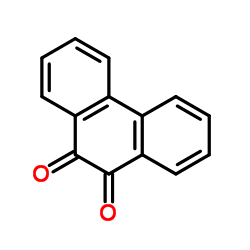
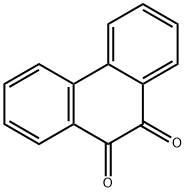
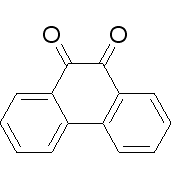
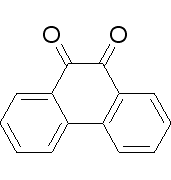
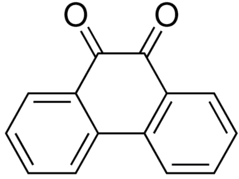
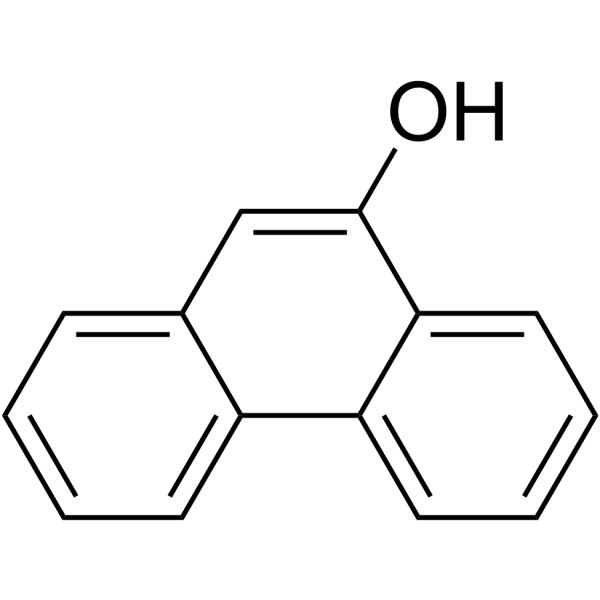
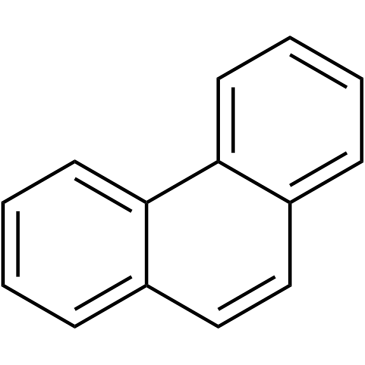
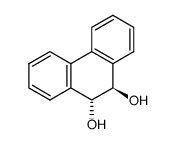
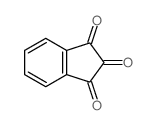
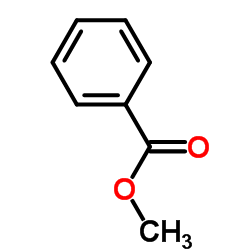
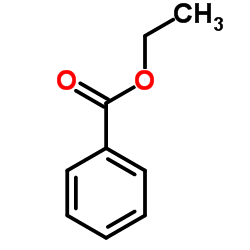
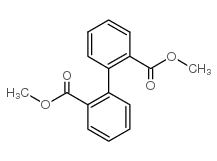

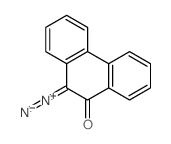
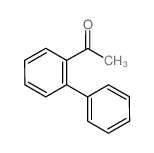
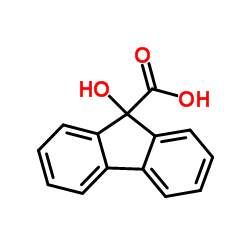
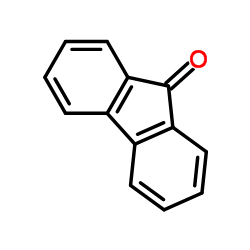
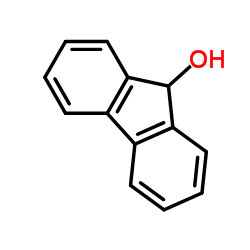
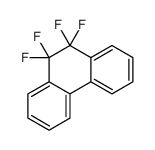
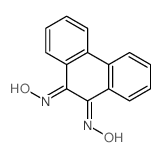
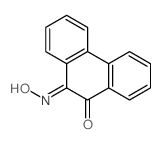
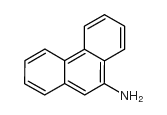
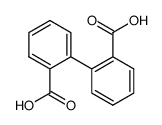
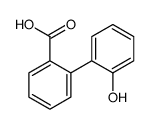
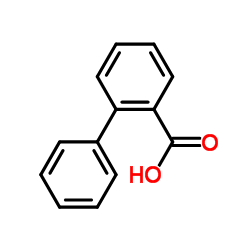





 浙公网安备 33010802013016号
浙公网安备 33010802013016号